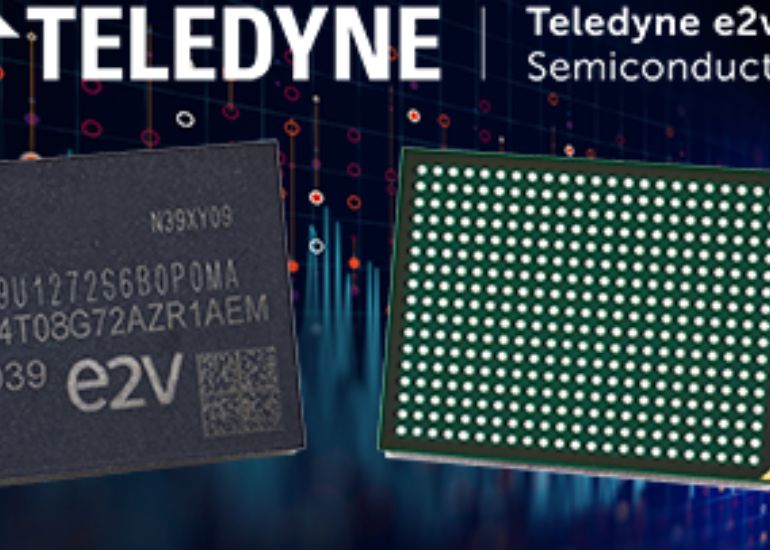Teledyne e2v has announced the successful Space qualification of its 8 GB space DDR4 memory as part of its edge compute solutions for space. This announcement marks the conclusion of Teledyne e2v’s DDR4 initial qualification.
These include all the upscreening activities (temperature cycling, construction analysis, C-SAM / confocal scanning acoustic microscopy, preconditioning, Temperature Humidity Bias, …) and Radiation tests. As demand for compact, high-density memories surge, Teledyne e2v stresses that its latest memory chip is compatible with all contemporary high-end space processing components. This long list of processors includes offerings from AMD/Xilinx VERSAL® ACAP, space FPGAs, MPSOCs, Microchip RT PolarFire®, as well as many proprietary ASICs.
Ultra-fast, high-density 8 GB DDR4 memory provides the same form factor and pin compatibility of the smaller 4 GB DDR4 option – an ideal option for next generation designs.
Modern satellite payloads shift vast amounts of data minute by minute, hour by hour. Moreover, modern Micro- and Cube-Sats place huge constraints on system size and power. In general, space missions such as Earth observation require tens of GB of storage. Consequently, space missions stress current memory solutions in terms of memory bandwidth, access time, power consumption, physical size, and storage capacity.
“Fast memory is a critical component in modern data-intensive satellites. The new 8 GB part doubles storage density in the same compact form factor of our previous 4 GB. Furthermore, with multiple temperature grades and qualification variants up to NASA level 1, Teledyne e2v has a diverse, ruggedized and versatile space grade portfolio,” Thomas Guillemain, Marketing & Business Development Manager, Data processing products.
The new fast 8 GB DDR4 memory supports a transfer rate of 2400 MT/s. It is single-event latch-up (SEL) immune up to 60 MeV.cm²/mg. Moreover, the device provides 100 krad total ionizing dose (TID) and we have SEU data up to 60 MeV.cm²/mg. Physically, the 8 GB device is supplied in a package form factor matching the previous 4 GB version (i.e., 15mm x 20mm x 1.92mm) – thus doubling storage density whilst maintaining pinout compatibility.


